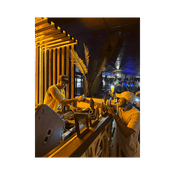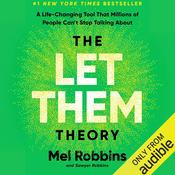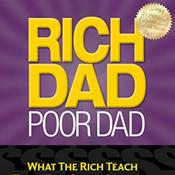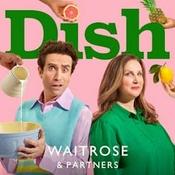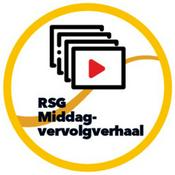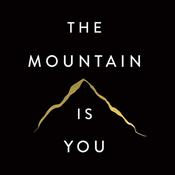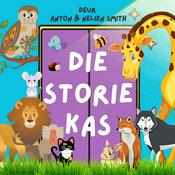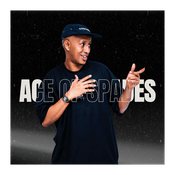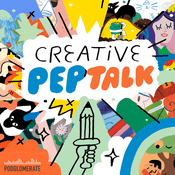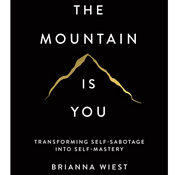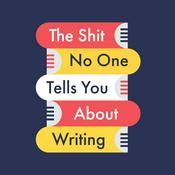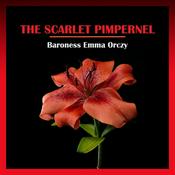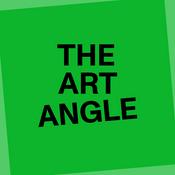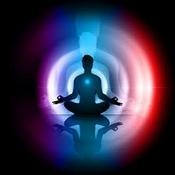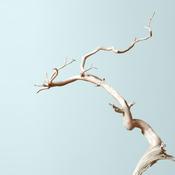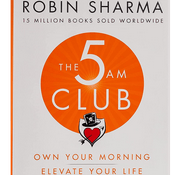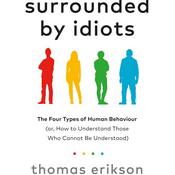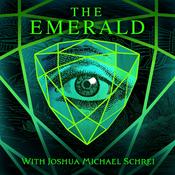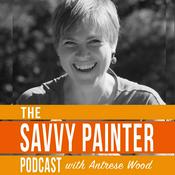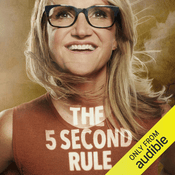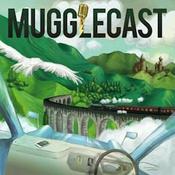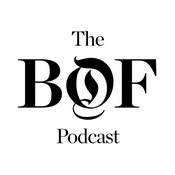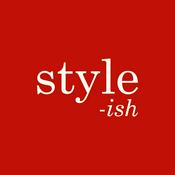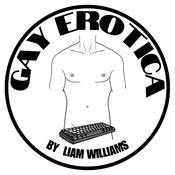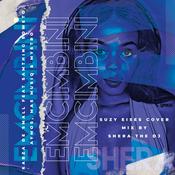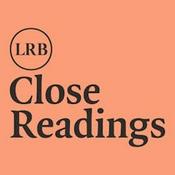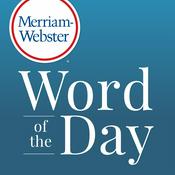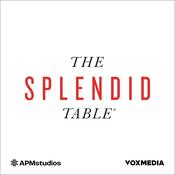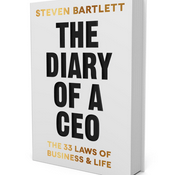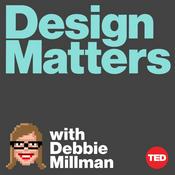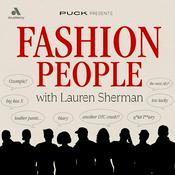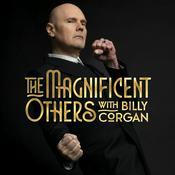263 episodes
- The thing about a preparedness mindset is that you are thinking into the future and so if one of those scenarios happens, you've already mentally prepared in some sort of way for it, so you're not dealing with the shock. That's a place as an artist that I feel has a lot of potential for engagement and for communication and bringing audiences along. When you're talking about realities, accepting that reality, has the potential to push us to do other things.
Welcome to another ENCORE episode of conscient podcast.
I do this because if you missed an episode the first time it was published you can hear it again.
However this is the last ENCORE episode for a while because I’m taking break from the production of this podcast, of its sister French language version, balado conscient as well as my a calm presence Substack for what looks like undetermined period of time.
I wrote about this in my last Substack posting called pressing pause.
My plan is to meditate on my next steps in this ongoing learning and unlearning journey and do a bit of self-care as I learned to do during the Zen and the Art of Saving the Planet course last fall.
But before pressing pause, so to speak, I wanted to publish this ENCORE episode because it’s about an issue that we will be talking about increasingly in the months and years to come: which is, how do we, as artists and cultural workers, respond more effectively to emergency situations and to ongoing societal disruption.
And who better that Jen Rae, a Melbourne, Australia based artist, researcher, facilitator and educator of Canadian Red River Métis and Scottish descent.
And before going any further I want to acknowledge that Jen Rae lives, creates and works on the unceded traditional lands of the Wurundjeri, Boon Wurrung, Woi Wurrung, and Wathaurong people of the Kulin Nation and offers deep respect to their elders - past, present and emerging.
So, this 47-minute conversation was recorded, remotely, on May 10, 2021. Jen and I talked about a wide range of issues including the intersection between art, emergency preparedness, disaster risk-reduction and resilience.
Here are some of the questions that were raised:
How do we embrace an emergency preparedness mindset?
What do we increase our focus on community resilience?
How can we challenge Western-centric narratives?
How can we further value inclusivity?
How can art and speculative fiction in particular, help free our minds and inspire action?
You’ll find some answers, also more questions, at the The Centre for Reworlding in Australia, where Jen is the creative research lead.
I’m also publishing this ENCORE episode to listen back to conversations recorded during the COVID pandemic.
For artists, in particular, it was a tough time. For a few of us it created opportunities for new forms of digital engagement but for most artists it was a nightmare of lost income, isolation and disconnection.
COVID, difficult as it was, can be thought of as a kind of test run for larger scale emergencies that will come as the climate crisis and related disasters unfold. So I’m grateful that artists like Jen Rae and The Centre for Reworlding are proactively are working, and this is a quote from their web site, to ‘advocate for the mainstream integration of culture & the arts in climate action and disaster management discourses, policy frameworks and all-years education’.
So let’s go back to 2021. And, as I did with all of my episodes at that time, you’ll hear excerpts from previous episodes that try to connect the thinking of my guests with some previous guests and that’s a lot of fun. It was a lot or work but then I had a lot of time on my hands.
So without further ado, episode 41 ENCORE. Warm thanks to Jen for this 2021 conversation and hopefully we’ll talk again if and when I come back to producing this podcast.
For more information on Jen’s work, see https://www.jenraeis.com, http://www.fairsharefare.com/ and The Centre for Reworlding.
Links to a selection of Jen’s work mentioned in this episode:
REFUGIUM: film premiering 27 April 2021 (online and in real life - in collaboration with Claire G. Coleman)
Who needs artists in a climate crisis?: Raising the Bar, 13 November 2019
Refuge Talk Series: Preparing for a pandemic (21 May - 1:01:35-1:08:08), Living in a pandemic (27 May) and Recovering from a pandemic (4 June)
*
END NOTES FOR ALL EPISODES
Hey conscient listeners,
I’ve been producing the conscient podcast as a learning and unlearning journey since May 2020. It’s my way to give back.
This Indigenous Land Acknowledgement statement was developed by members of the Algonquin community for my former employer the Canada Council for the Arts. I have adapted slightly to make it my own.
I acknowledge that my studio, located in Ottawa, is on the unceded, unsurrendered Territory of the Anishinaabe Algonquin Nation whose presence here reaches back to time immemorial.
I recognize the Algonquins as the customary keepers and defenders of the Ottawa River Watershed and its tributaries. I honour their long history of welcoming many Nations to this beautiful territory and uphold and uplift the voice and values of our Host Nation.
Further, I offer my respect and affirm the inherent and Treaty Rights of all Indigenous Peoples across this land and honour commitments to self-determination and sovereignty that have been made to Indigenous Nations and Peoples.
I acknowledge the historical oppression of lands, cultures and the original Peoples in what we now know as Canada and fervently believe the Arts contribute to the healing and decolonizing journey we all share together
In parallel with the production of the conscient podcast and its francophone counterpart, balado conscient, I I publish a free ‘a calm presence' monthly Substack see https://acalmpresence.substack.com.
Your feedback is always welcome at [email protected] and/or on social media: Facebook, Instagram, Linkedin, Threads, BlueSky, Mastodon, Tik Tok, YouTube and Substack.
Share what you like, etc
I am grateful and accountable to the earth and the human labour that provided me with the privilege of producing this podcast, including the toxic materials and extractive processes behind the computers, recorders, transportation systems and infrastructure that made this production possible.
Claude Schryer
Latest update on January 9, 2026 - uplift
here are some uplifting words for the new year drawn from 9 episodes of conscient podcast et 3 extraits du balado conscient
This posting of a calm presence was designed as an audio listening experience though it also exists in written form, here.
Ceci est un episode bilingue. Afin de faciliter la compréhension des extraits en anglais, j’ai ajouté une transcription de l’épisode en français dans les notes d’épisode. J’ai aussi ajouté un petit sommaire oral en français à la fin de chacun des épisodes en anglais. Personnellement, je trouve intéressant d'écouter quelqu'un parler dans une autre langue, car je peux me concentrer sur le ton et l'intonation de la voix.
This is a bilingual episode. For those who do not understand French I have added a transcript in English in the episode notes. I also created a short English language oral summary for each of the French language episodes. Personally, I find it interesting to listen to someone speak in another language because I can focus on the tone and inflection of the voice.
Please note that the pace of my narration is rather slow with the occasional short silence.
This is how I like to listen to narrations, with lots of space to ponder what is being said but also to consider what might lie in between the words and in the timbre of the voice. I’m also recording this reading in one take, flubs and all, similar to a late night radio monologue where it’s ok to be imperfect and where time is suspended.
Finally, a reminder that I now publish a calm presence postings one at a time, for a few weeks and then replace it with a new one and so on. In other words, what you’re listening to now, recorded on January 1, 2026 at 8.51 am it will be erased sometime in February 2026, never to be published again but I hope it might be retained in memory for those who need it, which is why I created this Substack in the first place, for those in need of a calm presence.
*
END NOTES FOR ALL EPISODES
Hey conscient listeners,
I’ve been producing the conscient podcast as a learning and unlearning journey since May 2020. It’s my way to give back.
This Indigenous Land Acknowledgement statement was developed by members of the Algonquin community for my former employer the Canada Council for the Arts. I have adapted slightly to make it my own.
I acknowledge that my studio, located in Ottawa, is on the unceded, unsurrendered Territory of the Anishinaabe Algonquin Nation whose presence here reaches back to time immemorial.
I recognize the Algonquins as the customary keepers and defenders of the Ottawa River Watershed and its tributaries. I honour their long history of welcoming many Nations to this beautiful territory and uphold and uplift the voice and values of our Host Nation.
Further, I offer my respect and affirm the inherent and Treaty Rights of all Indigenous Peoples across this land and honour commitments to self-determination and sovereignty that have been made to Indigenous Nations and Peoples.
I acknowledge the historical oppression of lands, cultures and the original Peoples in what we now know as Canada and fervently believe the Arts contribute to the healing and decolonizing journey we all share together
In parallel with the production of the conscient podcast and its francophone counterpart, balado conscient, I I publish a free ‘a calm presence' monthly Substack see https://acalmpresence.substack.com.
Your feedback is always welcome at [email protected] and/or on social media: Facebook, Instagram, Linkedin, Threads, BlueSky, Mastodon, Tik Tok, YouTube and Substack.
Share what you like, etc
I am grateful and accountable to the earth and the human labour that provided me with the privilege of producing this podcast, including the toxic materials and extractive processes behind the computers, recorders, transportation systems and infrastructure that made this production possible.
Claude Schryer
Latest update on January 9, 2026 - (note: to read the original a calm presence Substack posting click here)
It’s Thursday November 27th, 2025, at about 10pm.
I’m sitting by a fireplace at our cottage in Duhamel Québec and I want to tell you a story called 4%.
When I turned 50 on December 3rd, 2009, I decided to take 50 days off from my work, which was not easy at the time. My goal was to sort through the many boxes of stuff in our basement: letters, sketches, notes, articles, posters, booklets and so on.
At the end of the 50 days I wrote a Facts and Arguments article, ‘I took 50 days of when I turned 50’ that published in the Globe and Mail on February 18, 2010 about how and why I got rid of 80% of my archives during those 50 days off.
Here are two excerpts from that article:
I dug a hole in the snow and spent the next three hours burning the documents, page by page. Sometimes I would hesitate over an item but decided to see the process through. As paper transformed into ash, I internalized the voices and messages frozen in those documents. They will now die with me. I thanked the authors and my collaborators. This felt good and right. I smelled like a forest fire.
I started composing music when I was 12 in North Bay and have been active in a number of cultural fields since, including music, arts administration, programming and event production. Like many people, I kept records of my work - photos, recordings, scores, correspondence, programs and essays. I'm not quite sure why I kept it all, but I figured one day I would know. Perhaps it was vanity, but more likely an act of self-preservation.
It's 16 years later now and I have no regrets.
In fact, as I turn 66 in a few days I’m about to get rid of another 80% or so of the remaining 20% of my archives which leaves me with about 4% of my original belongings and that feels just about right.
Why did I do it?
Mostly it’s because I don’t want to leave a mess for my family when I die but there’s another reason…
I’m currently taking a course called Zen and the Art of Saving the Planet(ZASP), which is a learning journey to nurture insight, compassion, community, and mindful action in service of the Earth, based on the work of Zen Master Thich Nhat Hanh and has been developed by the monks at Plum Village in France.
One of the course’s many teachings refers to the Diamond Sutra, a 9th century Mahāyāna Buddhist text that focuses on concepts of emptiness, reality and wisdom.
What caught my attention during the course, and made me think about my archives, was how the Diamond Sutra questions the notions of self (separation), of what it means to be human, of our relations with all living beings and of one’s life span. As I processed these teachings, I felt it was a good time to let go of non-essential things.
So, what did I get rid of and why?
Gone are my cassette and DAT tape collection of field recordings from the 1980’s and 1990’s. Many of these sounds are in my compositions but the rest have no value. I threw out some back in 2010 but it’s now time to let them all go as the tapes fall apart. I create a little ritual to thank the voices recorded before letting them go.
Gone are piles and piles of articles and essays about acoustic ecology, climate change, environmental art and so on. I don’t think I’ll ever get around to reading them, so I gave away those that had value and burned the rest.
Gone are documents and minutes from organizations that I helped to incorporate like the WFAE, CASE, SCALE and so on. I trust that my colleagues in those organizations have kept key documents in their corporate archives so my files are now redundant.
I’ve streamlined my digital footprint on the internet, for example, I removed all 80 of my a calm presence Substack postings, which I now publish one at a time, this posting being the latest, which replaces erasure and so on. This lightens things up and keep me more anchored in the present.
I love books but gave away most of my books in the ‘take one - leave one’ community library in front of our house and trust that they will find their way to the right people.
I also gave away unused clothing and objects around the house are no longer required but that others might be able to use.
I’m telling you this because you might go through a similar process at some point in your life. It’s good to think about what we leave behind and in what kind of order.
So, what did I keep?
A few binders, organized chronologically, with original manuscripts, photos, letters, certificates, etc. and an SSD drive with my digital originals (essays, podcasts, my Substack, electroacoustic compositions, etc.). I also kept a few t-shirts but that’s about it. It all fits in a medium sized box.
That’s it.
I plan to continue learning and engaging with issues I care about, of course, but it’s a bit of fresh start. I’ll be going to the library more. I might even buy a new book or audio book once in a while, but the idea now is to keep knowledge flowing in the present – to read listen to things as they come out - and to keep the archives very light.
*
END NOTES FOR ALL EPISODES
Hey conscient listeners,
I’ve been producing the conscient podcast as a learning and unlearning journey since May 2020 on un-ceded Anishinaabe Algonquin territory (Ottawa).
It’s my way to give back.
In parallel with the production of the conscient podcast and its francophone counterpart, balado conscient, I I publish a free ‘a calm presence' monthly Substack see https://acalmpresence.substack.com.
Your feedback is always welcome at [email protected] and/or on social media: Facebook, Instagram, Linkedin, Threads, BlueSky, Mastodon, Tik Tok, YouTube and Substack.
Share what you like, etc
I am grateful and accountable to the earth and the human labour that provided me with the privilege of producing this podcast, including the toxic materials and extractive processes behind the computers, recorders, transportation systems and infrastructure that made this production possible.
Claude Schryer
Latest update on December 5, 2025 - Take care of the earth. We have grandsons and great-great-grandsons, and we have to, we, our generation, has to teach the young people what we lived, the beauty of the world that we lived, not the disaster we have today.
Hello conscient podcast listeners,
Many of us do international travel, probably a bit too much.
When I travel, I consider it a privilege that comes with responsibilities.
For example, whenever we can we try to give back by donating to local charities in the region where I’m visiting or maybe making sure that we tip appropriately and that the people we am with get a fare wage. We also try to by buy credible carbon offsets. That kind of thing.
You might recall e235 lallan – art from the soil, which I recorded while in the Tirthan Valley in Northern India :
My advice to artists would be drop every garb that you have, drop every piece of knowledge that you think you have. Head to the jungles, head to the rural places. We are living in a time of crisis.
You might also recall e236 keiko torigoe – the power of listening, which was recorded in Tokyo, Japan:
The environmental issues currently at hand, including global warming, are related, but I believe that at their root lies the decline of our listening ability and the power of listening as humanity.
Both episodes were recorded quite spontaneously on my iphone. I hadn’t planned to record these interviews, but as I listened to some of the stories around me and I thought it could be a gesture of reciprocity to make these voices available on this podcast to help raise awareness about activities in that country but also to point out commonalities between us all in the world.
So, what you’re about to hear is my third conversation in this series, this time with Francisco Rodriguez, a Chilean born banker, who with his wife Sylvia, manage the Anaconda Lodge on the shores of the Napo River near Tena, in Ecuador, where my wife Sabrina and daughter Clara were doing some eco-tourism.
So we had the pleasure of staying there and meeting Francisco and others from the region.
I sat down with Francisco – you’ll hear some birds and insects in the background - about his relationship with the Amazon forest as a living entity as well as their collaborations with the Kichwa indigenous people who are the traditional custodians of these lands and waters.
You’ll hear some beautiful sounds and good stories about the Amazon, which I found uplifting but you’ll also hear about some of the very serious challenges that they currently face, which call upon increased solidarity from the rest of the world, given that the Amazon is the lung of the earth.
You’ll notice this episode is a bit more than 15 minutes. I added some soundscapes that makes it a bit longer than usual, which I hope you’ll enjoy.
Warm thanks Francisco, Sylvia, all the guides and staff at Anaconda Lodge for their kindness and hospitality.
Episodes notes generated by Whisper Transcribe AI
Key Takeaways:
Support Indigenous communities by living alongside them and understanding their challenges, rather than offering temporary aid.
Learn about the Amazon’s diverse cultures and ecological fragility through reading and authentic resources.
Reduce your carbon footprint by making small, conscious changes in daily habits to support global environmental efforts.
Recognize the Amazon as a single, interconnected entity, not divided by national borders, but by Indigenous territories.
Understand the impact of Western influences, such as processed food and consumer goods, on uncontacted tribes and their traditional way of life.
Story Preview
Discover the journey of Francisco Rodriguez, who left the banking world to dedicate his life to protecting the Amazon and working its Indigenous peoples. Hear how he and his wife Sylvia created Anaconda Lodge as a bridge between cultures, fostering understanding and solidarity for the ‘lung of Mother Earth.’
Chapter Summary
00:00 Introduction to Amazon and Indigenous Voices
02:44 From Banker to Amazon Advocate
05:50 Living with Indigenous Communities
09:58 Ecotourism and Amazonian Consciousness
14:25 Understanding the Amazon from Afar
20:00 Sustainable Living and Jungle Communication
Featured Quotes
We always hope that when they go back home, they use less fossil fuel.
You have to think one thing, these people have been beating up by our, by we Western people for over 500 years.
Our main goal is to make our guests to understand where they are.
Behind the Story
Claude shares his third recording from international travel, this time from the Anaconda Lodge near Tena, in Ecuador. He, his wife Sabrina, and daughter Clara experienced ecotourism firsthand which led to this conversation with Francisco Rodriguez. The episode highlights the value of reciprocity when traveling and making voices from different regions accessible to a global audience.
*
END NOTES FOR ALL EPISODES
Hey conscient listeners,
I’ve been producing the conscient podcast as a learning and unlearning journey since May 2020. It’s my way to give back.
This Indigenous Land Acknowledgement statement was developed by members of the Algonquin community for my former employer the Canada Council for the Arts. I have adapted slightly to make it my own.
I acknowledge that my studio, located in Ottawa, is on the unceded, unsurrendered Territory of the Anishinaabe Algonquin Nation whose presence here reaches back to time immemorial.
I recognize the Algonquins as the customary keepers and defenders of the Ottawa River Watershed and its tributaries. I honour their long history of welcoming many Nations to this beautiful territory and uphold and uplift the voice and values of our Host Nation.
Further, I offer my respect and affirm the inherent and Treaty Rights of all Indigenous Peoples across this land and honour commitments to self-determination and sovereignty that have been made to Indigenous Nations and Peoples.
I acknowledge the historical oppression of lands, cultures and the original Peoples in what we now know as Canada and fervently believe the Arts contribute to the healing and decolonizing journey we all share together
In parallel with the production of the conscient podcast and its francophone counterpart, balado conscient, I I publish a free ‘a calm presence' monthly Substack see https://acalmpresence.substack.com.
Your feedback is always welcome at [email protected] and/or on social media: Facebook, Instagram, Linkedin, Threads, BlueSky, Mastodon, Tik Tok, YouTube and Substack.
Share what you like, etc
I am grateful and accountable to the earth and the human labour that provided me with the privilege of producing this podcast, including the toxic materials and extractive processes behind the computers, recorders, transportation systems and infrastructure that made this production possible.
Claude Schryer
Latest update on January 9, 2026 - In an era where pressures on climate and environments grow even stronger, we should not underestimate the transformative power of art. (Ambassador of the European Union to Canada Geneviève Tuts)
When you do the trigger, the emotional part, you can go down hope and fear both. Both lead to action but ultimately, we need to transform being passive into really active contributors to solving this and what a better way than art? (Akash Rastogi, Chief Capital Strategy Officer at Canada’s Ocean Supercluster)
We want to activate the creativity of communities through the arts to create the cities of the future, basically, right, the cities we want to live in (Juan Eraso, leader of international programs at Culturans)
‘Change happens. There's always going to be ways to adapt. That's not to say that the initial change might not be catastrophic but there was always going to be something left and you have to work with that’. (e208 clara schryer - science as story). Now it breaks my heart to hear that because for a young person to say that means that they don't anticipate there won't be a lot left and yet… (Claude Schryer)
We know that when we work with green spaces, we work with life, we work with art, we can rebuild, we can regenerate, but we have to do it differently. (Claude Schryer)
Yes, to doing things differently.
Yes, to more evocative, emotionally resonant art.
Yes, to dissolving boundaries.
(Background sound from Jubilee Queen Cruise Ship in podcast)
When I got an invitation from Jana Macalik, Director of the Global Centre for Climate Action at OCAD University to participate on a panel about art and climate - one of my passions - I was excited and honoured to accept.
This panel was part of an event called Dissolving Boundaries that took place on October 4, 2025, as part of Nuit Blanche Toronto, which of course went on all night. It featured the premiere of a large scale, beautiful large-scale art projection by Alessandro Gisendi and Marco Noviello of the OOOPStudio in Italy. Their work was projected onto the massive Canada Malting Silos on the shores of Lake Ontario in Tkaronto.
Dissolving Boundaries was co-presented by the Global Centre for Climate Action at OCAD University and the European Union (EU), through its Delegation to Canada. I want to thank them for their hospitality and congratulate them their vision in collaborating, partnering and bringing this work and this conversation to us.
The timing was good for me. I was wrapping up season 6 of my conscient podcast / balado conscient after some 350 episodes since I started it in 2020 and I was about to take a break, but then I got a call to talk about how arts and culture can help move audiences from awareness to action and I could not refuse that. I felt good about speaking freely and really listening to the different points of view.
We were on a ship called the Jubilee Queen Cruise Ship so it quite moving, literally, to be on a boat looking out onto the projection and talking about art, culture and climate.
Here’s Ana Serrano, OCAD University’s President and Vice-Chancellor explaining what the event was about:
But we can't stop, really. We don't really have much of a choice. So, convening like this, trying to figure out ways to create evocative, emotionally resonant works that will catalyze people into thinking about their relationship with the land, with water, with climate and their daily actions is what tonight is all about.
First you’ll hear Ana Serrano shares some inspiring opening remarks, followed by an engaging speech by the Ambassador of the EU to Canada, Geneviève Tuts. You’ll then hear panelists, with Ana as facilitator, speak one by one. First Alessandro Gisendi, Akash Rastogi (Chief Capital Strategy Officer at Canada’s Ocean Supercluster) myself, Juan Erazo (Culturans) and Alice Xu (Director of Policy, Planning and Program Enablement; Environment, Climate and Forestry Division at the City of Toronto).
At the end of the recording you’ll hear a question from an audience member, who happens to be a friend of mine, Coman Poon (e202 coman poon - what are you doing with your life ?) ask about ‘extraction for the sake of economic autonomy’, which we all commented upon. The conversation continued until it was time to view the art projection!
I want to express my warmest thanks to the organizers, fellow panelists, audience members and in particular to OCAD sound technician Omar Qureshi, who recorded this session for me.
Enjoy. It’s good to talk about these things with creative energy.
May the conversations continue.
*
Episodes notes generated by Whisper Transcribe AI
Key Takeaways:
Activate community creativity through art to design future cities and foster positive change.
Bridge the gap between rational climate data and emotional engagement to motivate action.
Reassess economic models to prioritize natural assets and foster international cooperation for scalable solutions.
Integrate nature-based solutions into urban planning and daily life, celebrating local initiatives.
Leverage cross-sector collaboration, including Indigenous wisdom, to address complex climate challenges with accountability and compassion.
Story Preview
In a world grappling with urgent climate pressures, this episode reveals how art can ignite powerful emotions, transforming passive observers into active contributors. Hear how artists, scientists, and policymakers converge to create evocative experiences that inspire hope and drive tangible solutions for a sustainable future.
Chapter Summary
00:00 Art’s Transformative Power in Climate Action
05:42 OCAD U’s Vision for Climate Action
12:55 EU’s Commitment to Sustainable Future
18:11 Dissolving Boundaries: Art Installation
23:02 Oceans, Innovation, and Emotional Triggers
27:44 Art as a Tool for Community Creativity
33:14 Nature-Based Solutions and Urban Greenery
37:26 Reconnecting with Nature
39:55 Cross-Sectoral Collaboration for Future Cities
42:44 International Cooperation for Ocean Climate Solutions
45:26 Art’s Role in Changing Habits
47:40 Building Connections for Climate Action
49:16 Addressing Societal Values and Economic Flaws
52:05 Indigenous Wisdom and Future Paths
53:41 Closing Remarks and Art Installation Details
Featured Quotes
In an era where pressures on climate and environments grow even stronger, we should not underestimate the transformative power of art. (Ambassador of the European Union to Canada Geneviève Tuts)
When you do the trigger, the emotional part, you can go down hope and fear both, both lead to action, but ultimately, we need to transform being passive into really active contributors to solving this. And what a better way than art? (Akash Rastogi, Chief Capital Strategy Officer at Canada’s Ocean Supercluster)
We know that when we work with green spaces, we work with life, we work with art, we can rebuild, we can regenerate, but we must do it differently. (Claude Schryer)
Behind the Story
This panel discussion, “Dissolving Boundaries,” was recorded on October 4, 2025 on the Jubilee Queen cruise ship during Nuit Blanche Toronto. It featured the premiere of a large-scale art projection by Alessandro Gisendi and Marco Noviello of Oops Studio, projected onto the Canada Malting Silos. Co-presented by OCAD University’s Global Center for Climate Action and the European Union, the event brought together diverse art and climate experts to explore the role of art and collaboration in addressing climate change.
*
END NOTES FOR ALL EPISODES
Hey conscient listeners,
I’ve been producing the conscient podcast as a learning and unlearning journey since May 2020. It’s my way to give back.
This Indigenous Land Acknowledgement statement was developed by members of the Algonquin community for my former employer the Canada Council for the Arts. I have adapted slightly to make it my own.
I acknowledge that my studio, located in Ottawa, is on the unceded, unsurrendered Territory of the Anishinaabe Algonquin Nation whose presence here reaches back to time immemorial.
I recognize the Algonquins as the customary keepers and defenders of the Ottawa River Watershed and its tributaries. I honour their long history of welcoming many Nations to this beautiful territory and uphold and uplift the voice and values of our Host Nation.
Further, I offer my respect and affirm the inherent and Treaty Rights of all Indigenous Peoples across this land and honour commitments to self-determination and sovereignty that have been made to Indigenous Nations and Peoples.
I acknowledge the historical oppression of lands, cultures and the original Peoples in what we now know as Canada and fervently believe the Arts contribute to the healing and decolonizing journey we all share together
In parallel with the production of the conscient podcast and its francophone counterpart, balado conscient, I I publish a free ‘a calm presence' monthly Substack see https://acalmpresence.substack.com.
Your feedback is always welcome at [email protected] and/or on social media: Facebook, Instagram, Linkedin, Threads, BlueSky, Mastodon, Tik Tok, YouTube and Substack.
Share what you like, etc
I am grateful and accountable to the earth and the human labour that provided me with the privilege of producing this podcast, including the toxic materials and extractive processes behind the computers, recorders, transportation systems and infrastructure that made this production possible.
Claude Schryer
Latest update on January 9, 2026
More Arts podcasts
Trending Arts podcasts
About conscient podcast
e243 was the last episode of season 6. I’m now on a break from hosting and producing conscient podcast and balado conscient episodes until further notice, except for narration of ‘a calm presence’ Substack posting and occasional ENCORE episodes. Comments and questions are always welcome: [email protected].
Podcast websiteListen to conscient podcast, Lekompo Mix and many other podcasts from around the world with the radio.net app
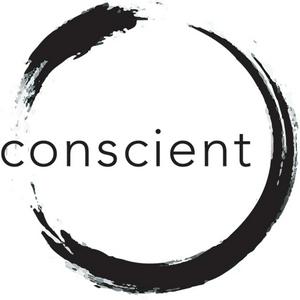
Get the free radio.net app
- Stations and podcasts to bookmark
- Stream via Wi-Fi or Bluetooth
- Supports Carplay & Android Auto
- Many other app features
Get the free radio.net app
- Stations and podcasts to bookmark
- Stream via Wi-Fi or Bluetooth
- Supports Carplay & Android Auto
- Many other app features


conscient podcast
Scan code,
download the app,
start listening.
download the app,
start listening.

